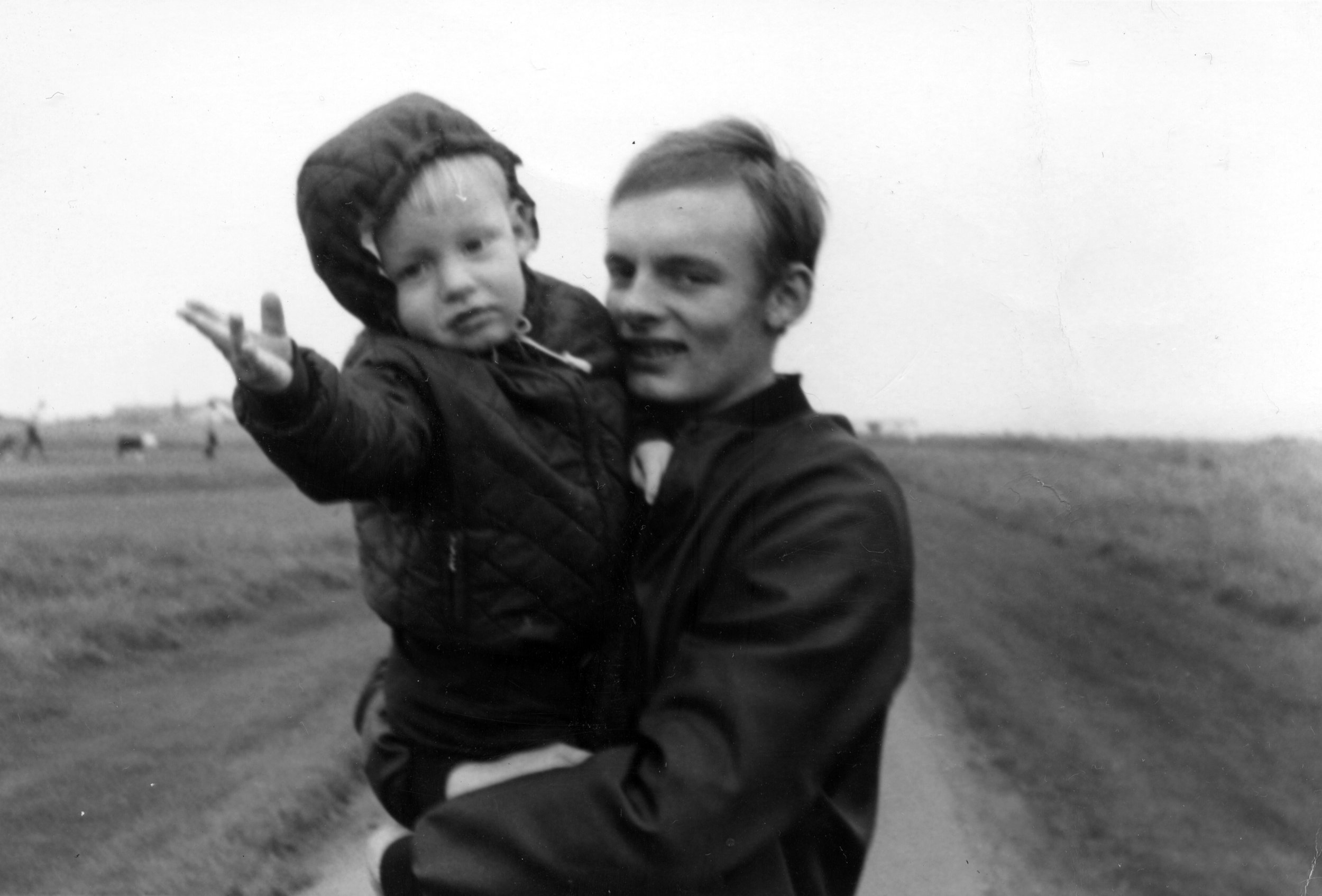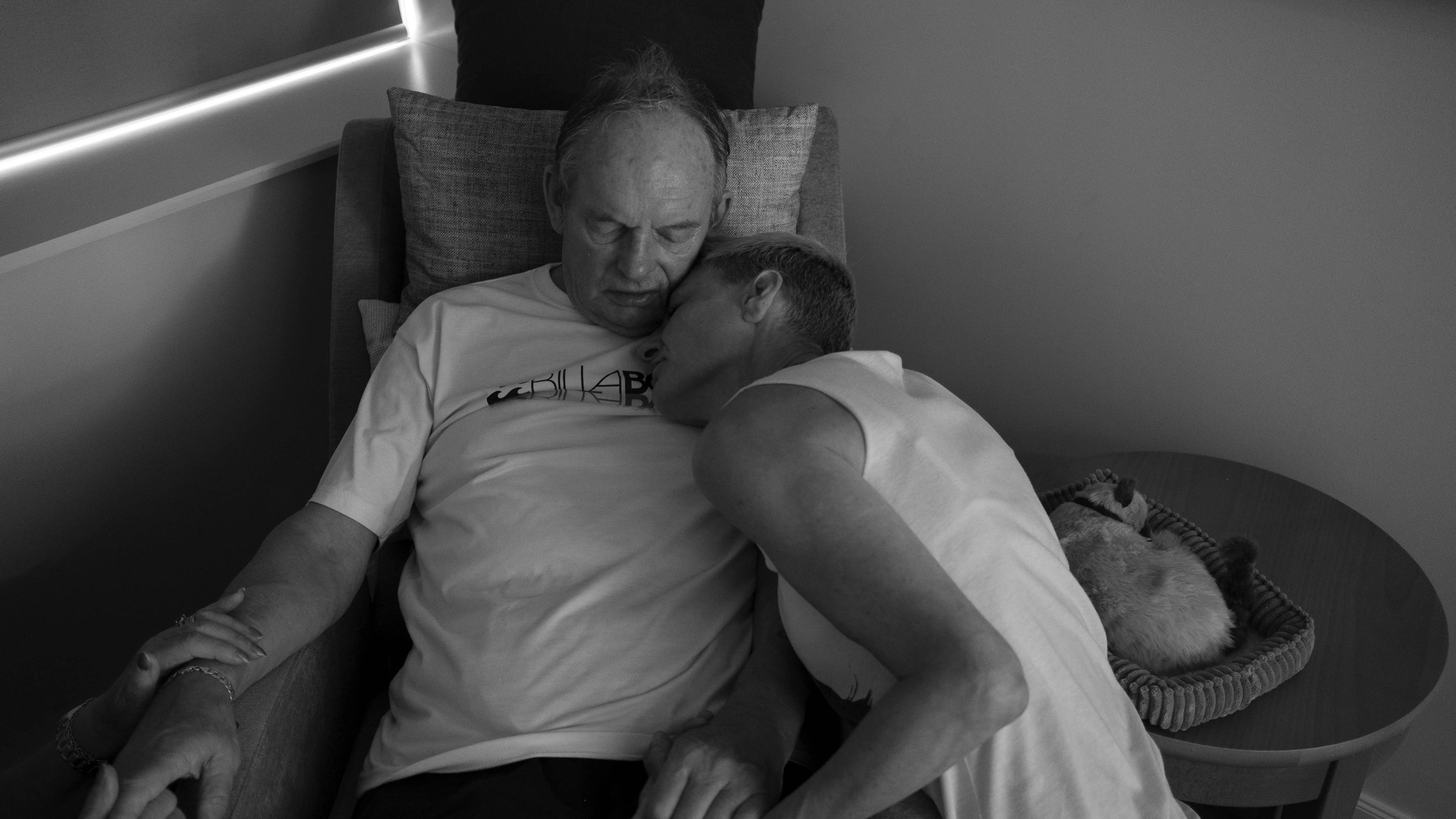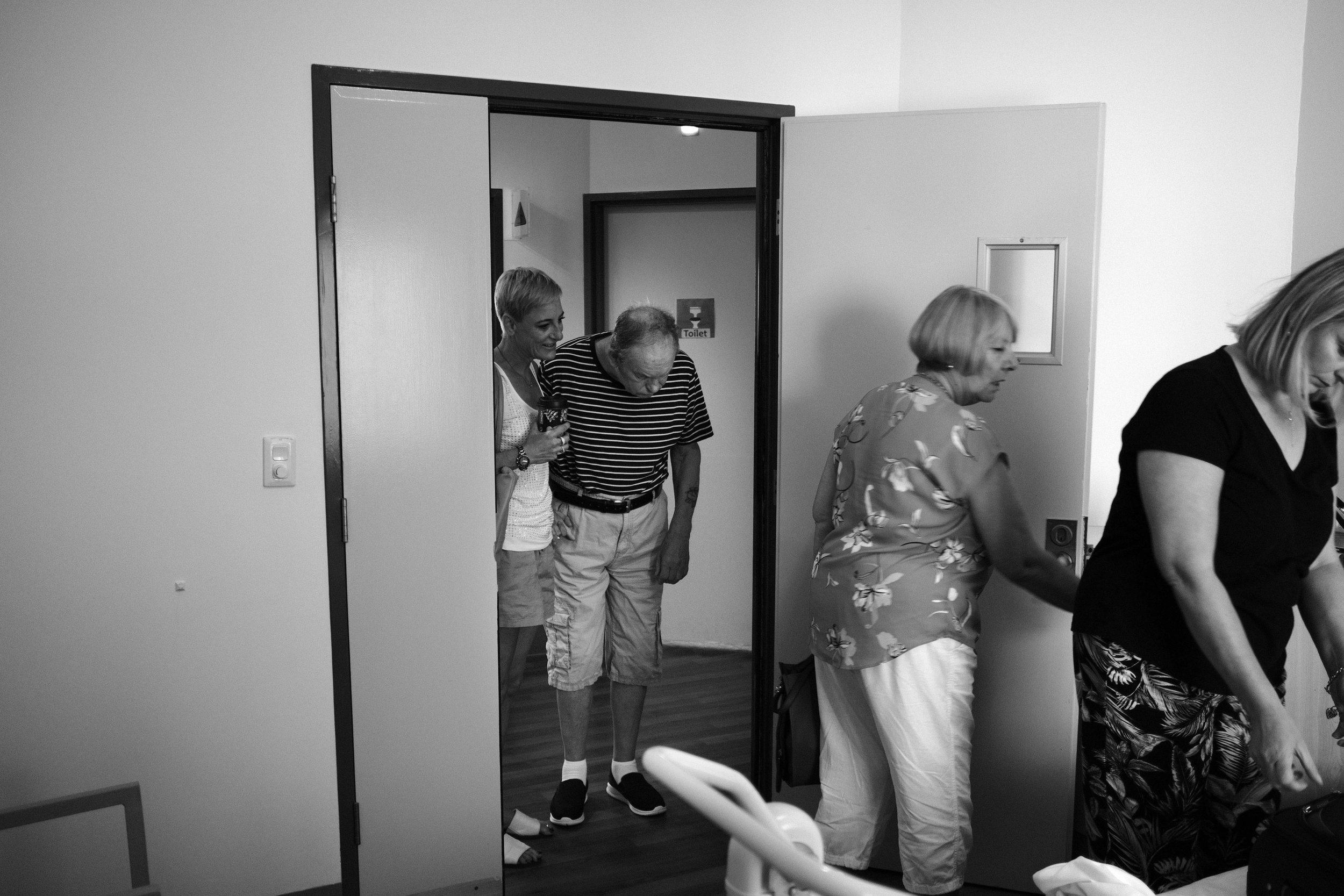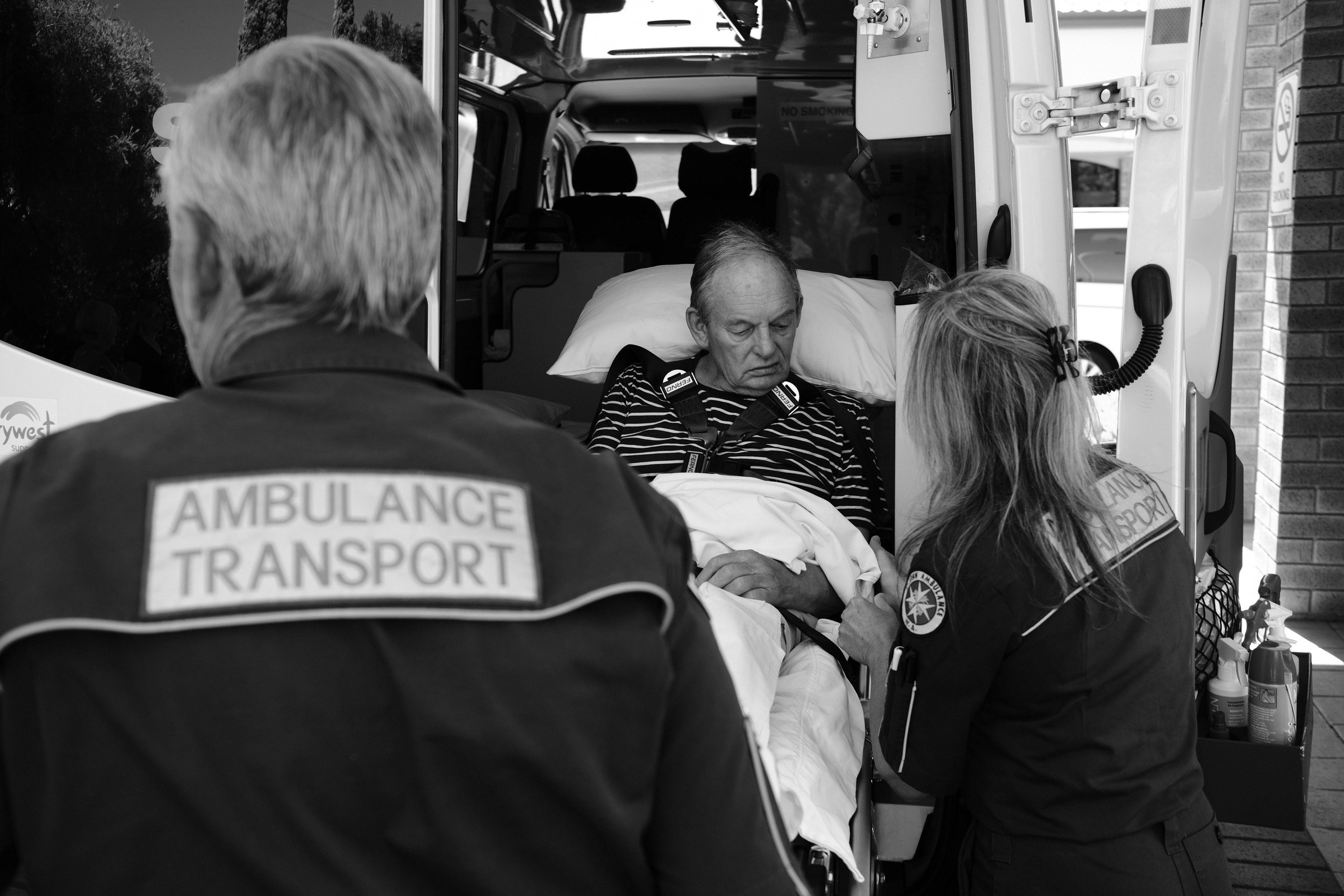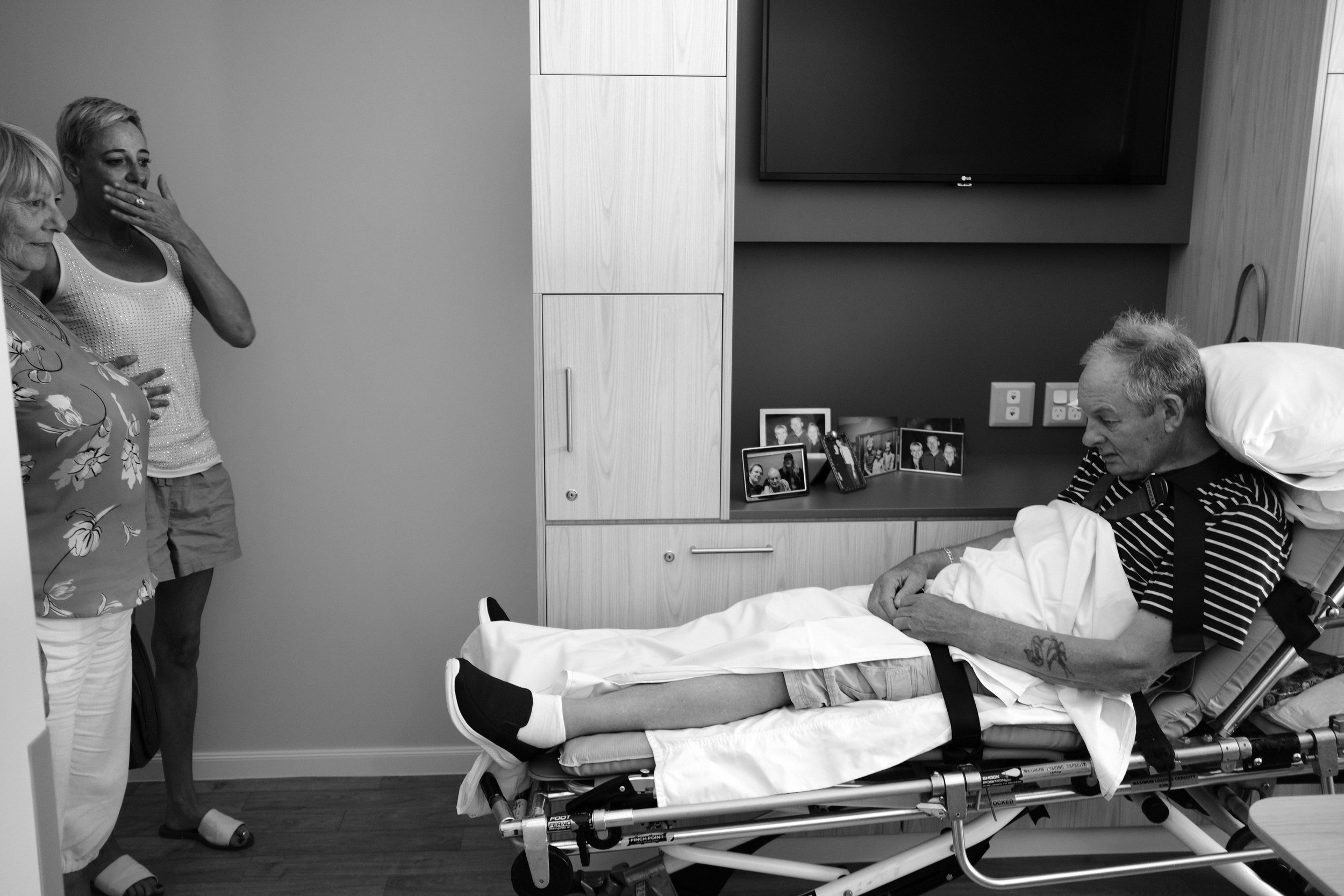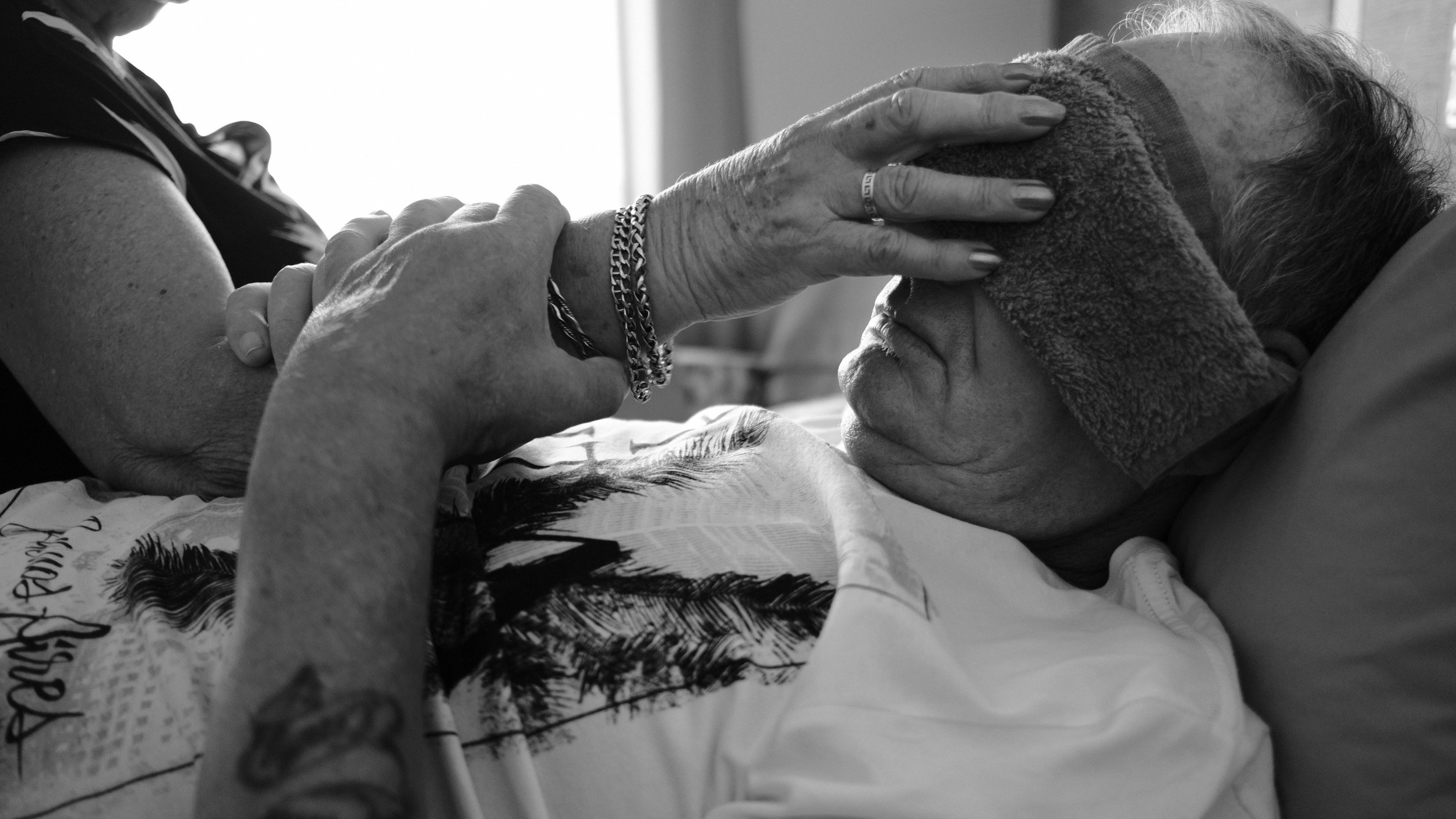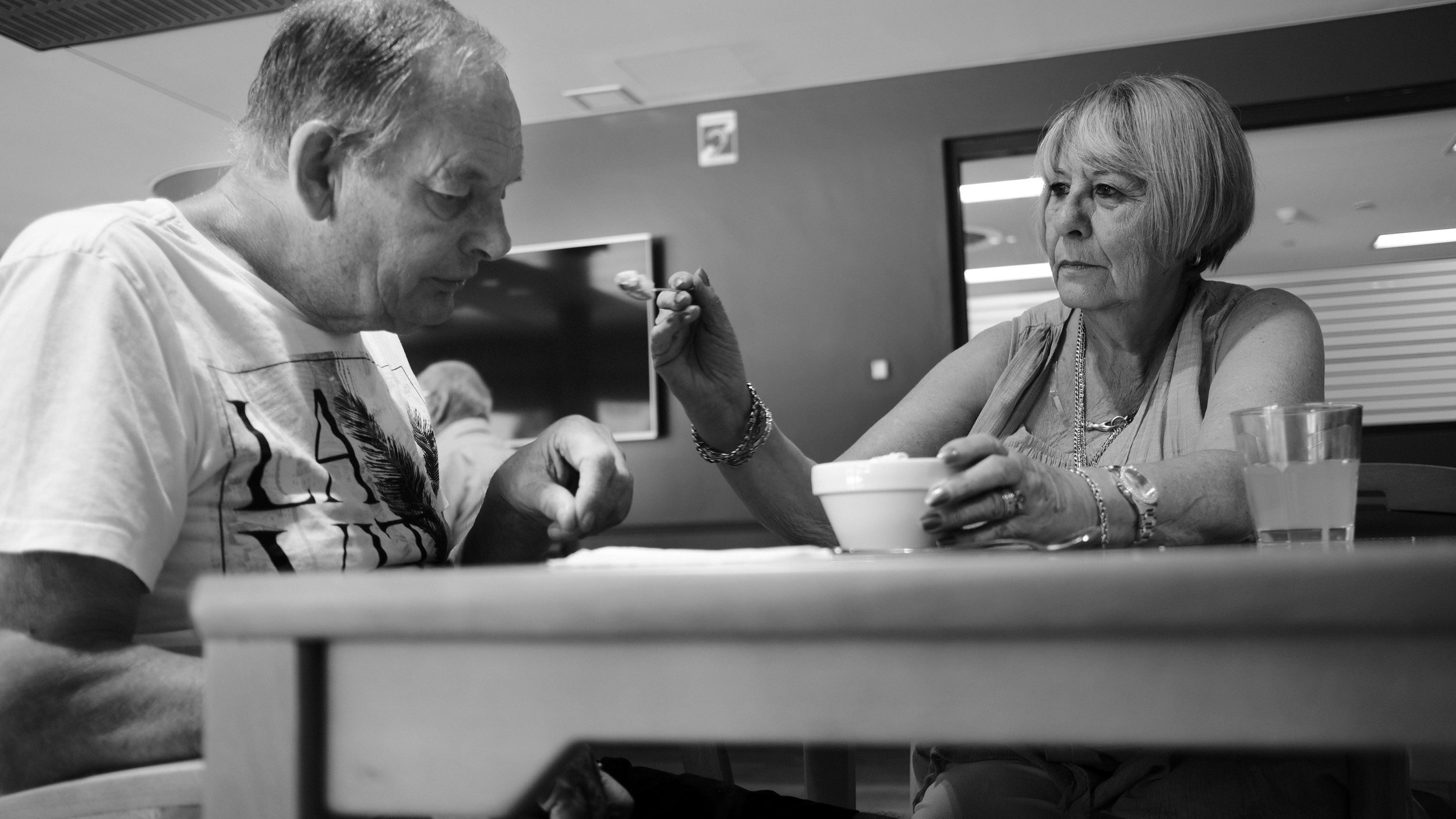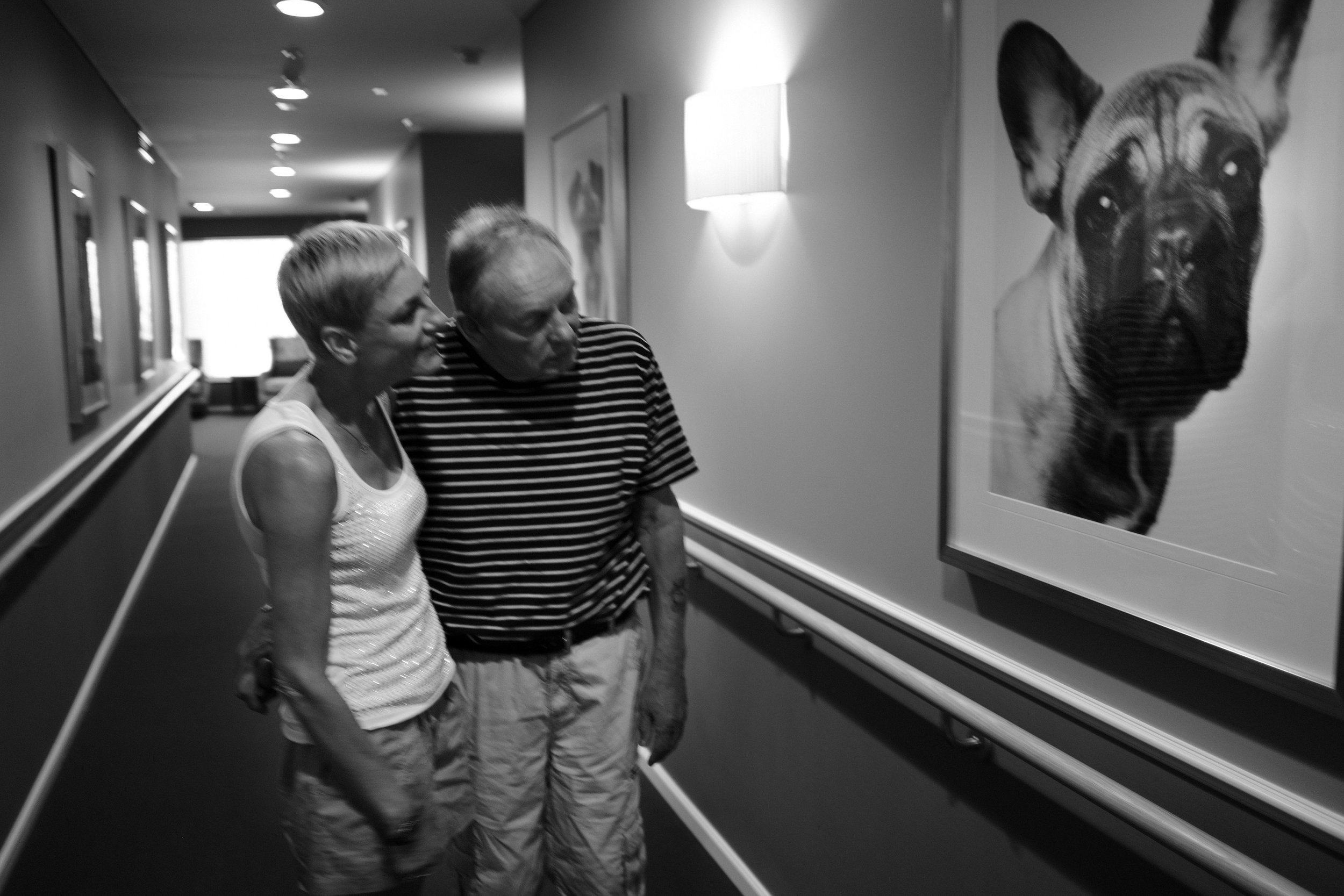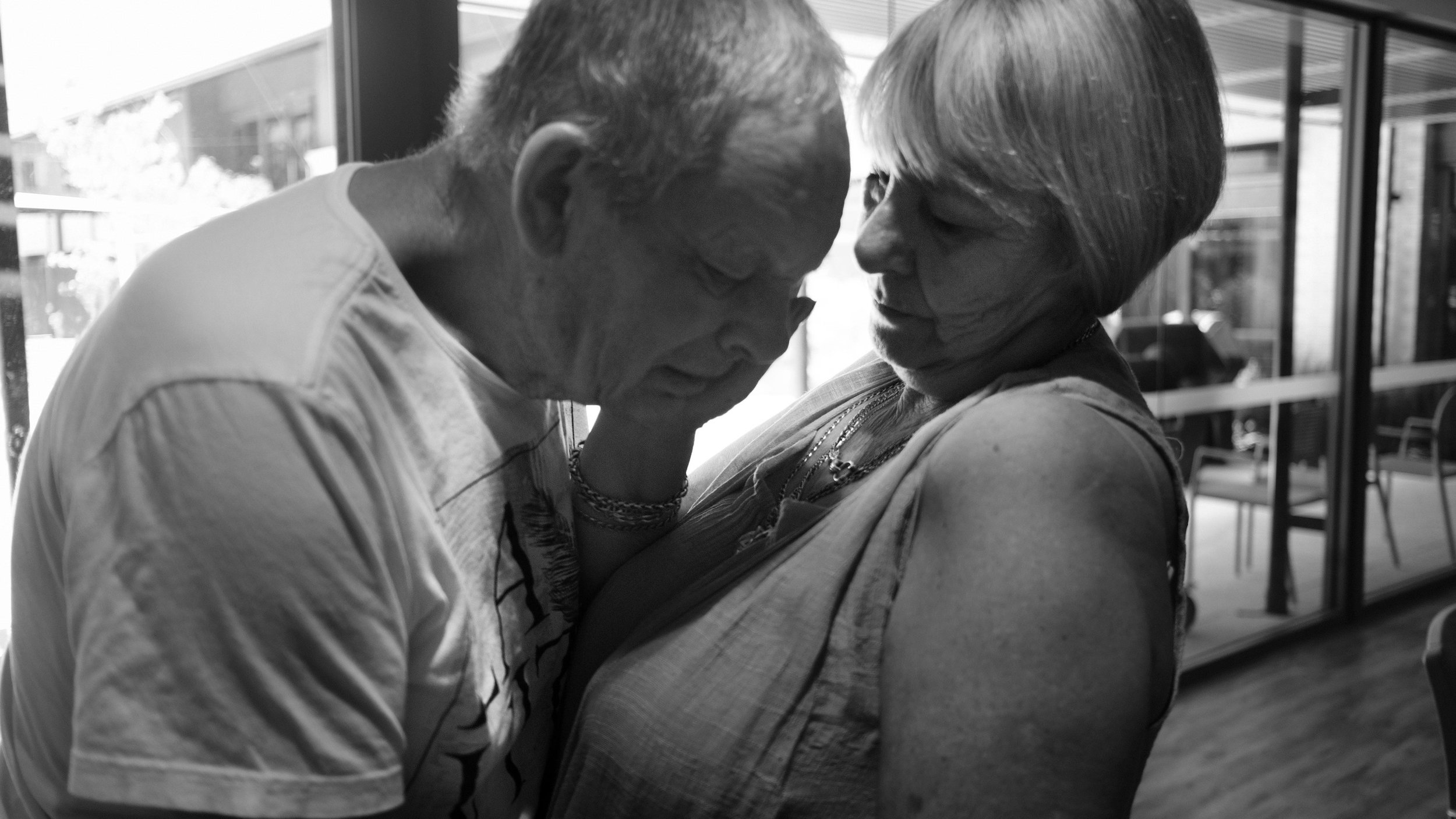From shallow mass graves in Kosovo to the bloody battlefields in Helmand province, I have covered some pretty tough photographic assignments in my life. But this has been, by far, the hardest of all: documenting the day my father moved into a full-time care facility for people with stage four Dementia/Alzheimer’s.
Battling with my inner ethical issues over whether or not to photograph the event was a struggle from the start, but my father raised me always to tell the truth and in the end that’s what won me over.
How could I continue to crash into people’s lives with my camera when they are at their most vulnerable and yet not have the courage to do it with my own family? The answer was staring me in the face. Not to document this would have been a blatant double standard.
During the five days I spent with my dad in his new home, the camera did not provide the protection I had hoped it would. During previous difficult assignments, the camera was always my primary protector, providing a small barrier between me and the horror I was capturing. Not this time.
There was no stopping or hiding my tears as I photographed the raw love my mum and sisters were displaying as they tended to my once strong and proud father – now a frail shadow of his former self.
My mum and sisters with my dad in Perth.
We’ve always been a close-knit family. My mum and dad immigrated from Scotland in 1975 – so-called Ten Pound Poms hoping for a better life Down Under.
They sacrificed everything, leaving behind their own ageing parents to give their three children a better life.
Holding his shaking hand as we walked slowly around the facility, in an attempt to settle him into his brand-new environment, was very difficult for me.
He is only capable of small slow steps now - his walk a shuffle. He is also badly hunched over, barely recognisable as the man I used to know. He looks at me and I realise he has no idea who I am.
It’s truly soul-destroying. But he is still my dad and I love him dearly.
His struggle to communicate with us was particularly difficult to watch. I could see him concentrating so hard, only to have gibberish pass his lips. I could see his frustration but was powerless to help him.
Having to dress him, feed him and help him go to the toilet was a huge reality check for me. I remember always joking when we were kids, saying we would never wipe our parents’ bums. Well, guess what?
You don’t even think about it, you just do it. All you feel is the love for that person in their time of great need. All the misgivings you had go out the window when the one person you have looked up to your whole life is in pain and needs you.
My raw overpowering emotion at his decline, coupled with watching my distraught mother and sisters throughout the process, will stay with me forever.
This has to be one of the cruelest diseases. Nothing can prepare you for it, no matter how strong you are. In the end you can only try to do what is right for your ailing loved one and hope to god that the end comes quickly.




